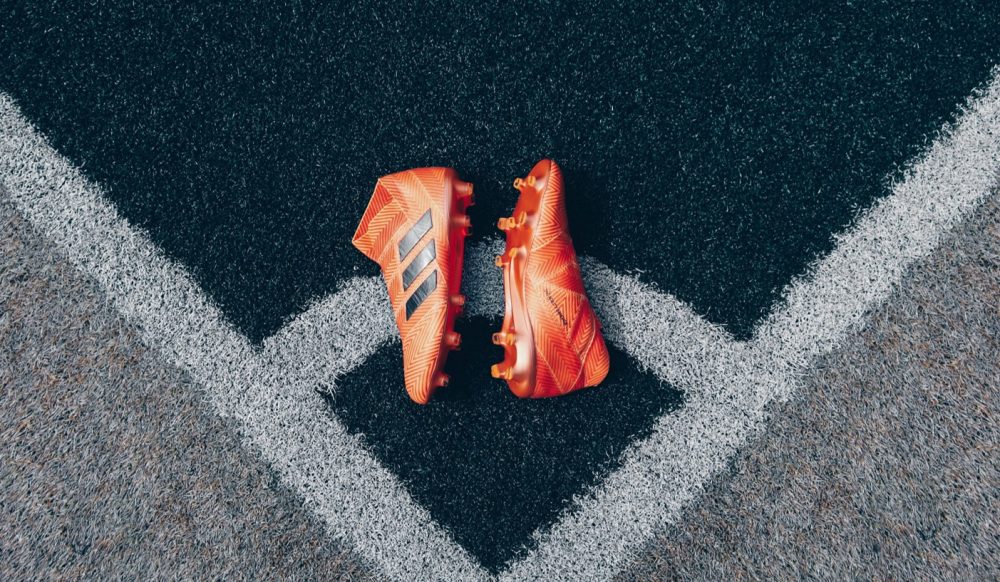
ACL injuries in football: all you ‘kneed’ to know
Posted on Mon Aug 5, 2019
Dr Chris Jones, Sports Medicine Doctor and Charlton Athletic FC’s Club Doctor, explains how to treat ACL injuries incurred from football.
ACL injuries: why are they so prevalent?
The ACL (anterior cruciate ligament) is a major knee ligament; one of two ligaments that cross in the knee. The ACL helps to provide stability to the knee joint, as it connects the thigh bone to the shin bone.
Injury to the ACL may result in a sprain, (ligament stretches), or tear, which may be a partial or a complete tear. ACL injuries commonly occur when people playing sports suddenly stop or change direction. They may also occur when people land awkwardly from a jump or as a result of direct trauma to the knee.
Recovery from ACL injuries can range from several months out of sport in non-surgical cases, to two years following reconstruction. The ACL injury rate has not declined over the past 20 years and there is a significant re-rupture rate, even in professional football. Three years after a ruptured ACL, only two-thirds of professional players still compete at the highest level. The long-term consequences such as early-onset osteoarthritis are also well-known.
Tips to help prevent injury – including when it could occur in a game
Preventing an ACL injury is not easy as there are several risk factors, including:
- Being younger in age. Younger people tend to be more active and play higher risk sports.
- Being female. Females have anatomical differences in their pelvis and lower limbs to males. There is also some research that suggests that hormonal differences may affect ligament strength and laxity.
- Playing risky sports. These may involve pivoting movements and quick changes of speed, such as football, basketball, skiing and volleyball to name a few.
- Being less conditioned
- Having poor coordination
- Other external factors such as faulty equipment and pitch surfaces
Research suggests that risks can be lowered by following advice from experienced trainers and clinicians with expertise in ACL prevention.
Training and prevention programmes should include:
- Lower limb strengthening, (hamstring and gluteal muscle)
- Core stability and pelvic control strength
- Balance and coordination
- Neuromuscular training and movement re training
- Aerobic fitness and conditioning
The injury can occur at any time in a game so it is important to ensure muscles are activated and that you do not play with an injury.
If they do occur, how to recognise them
You may hear a ‘pop’ noise and people often report pain. There can be a sense of the knee feeling unstable and most people cannot usually continue their sport. Stiffness and swelling of the knee may follow.
After any significant knee injury, it is essential to have a clinical assessment of your knee. New swelling suggests that something inside the knee is unhappy and there has likely been an injury to one of the structures. It is important to get an accurate diagnosis to determine the severity of the injury and how best to treat it.
The assessment should involve a physical examination of the knee. It is important to see an experienced practitioner who is able to make an accurate diagnosis.
Ligament tests will be performed to check if the ligament feels stable or unstable.
A comparison is usually made with the non-injured side to help confirm the diagnosis.
To support the diagnosis further an MRI scan is usually requested.
Even before having an MRI scan, it is worth having physiotherapy. Physiotherapists can offer key advice as how best to walk, how to keep muscles active and how simple methods such as icing, elevation and light massage may help reduce pain and swelling.
How to treat and when to seek further advice
Even patients that require surgery for ACL reconstruction should have a period of physiotherapy before the surgery. This is called ‘prehab’ and the aim is to better prepare you for surgery.
A knee without swelling, good range of motion and strong muscles tend to recover better from surgery. Prehab also provides an opportunity for many questions to be answered and can equip you with exercises and strategies to manage your knee immediately after surgery. The first few days, even weeks can be sore so it’s best to be prepared.
The recovery process
Recovery from an ACL injury can depend on if you have had surgery or not. Some people can cope well without surgery but younger active patients that play pivoting sports tend to require surgery.
In either situation the recovery process is not easy. Regular intensive physiotherapy is recommended in order to return to sports. This is a challenging process for all involved and it is therefore important that you have the right support and team around you.
Teams that have experience in managing patients with ACL injuries usually follow a phased based recovery process:
- Resolution of pain and swelling
- Recovery knee mobility (range of motion)
- Recovery of strength
- Recovery of neuromuscular function and movement quality
- Recovery of aerobic fitness and conditioning
- Recovery and preparation for sport specific skills (which should be performed in a suitable environment such as on a field)
- You should feel supported throughout the process and as you pass through these phases your confidence in your knee should grow.
Oryon Connect
Oryon Connect is a free service which helps people with pain issues to find the right practitioner for them, at an affordable price.
About the author
Dr Chris Jones is an Oryon Connect Partner, Charlton Athletic FC’s Club Doctor and a Sports Medicine Doctor at Isokinetic. If you’d like to book an appointment with him, contact Oryon Connect on 020 7042 1881 or at connect@oryon.co.uk.
Share this article
Most Recent
What To Expect From a Prostate MRI
Posted on Fri Oct 3, 2025
Interview with Our Referral Relationships Manager
Posted on Fri Oct 3, 2025
Posted on Tue Sep 16, 2025






